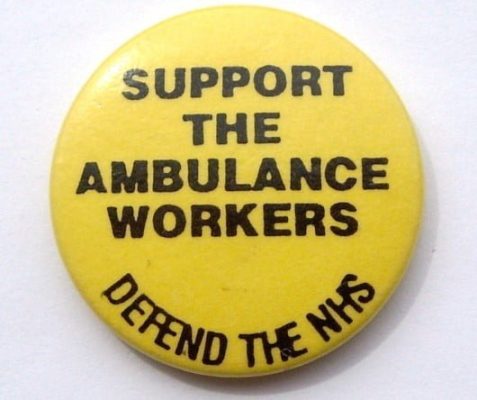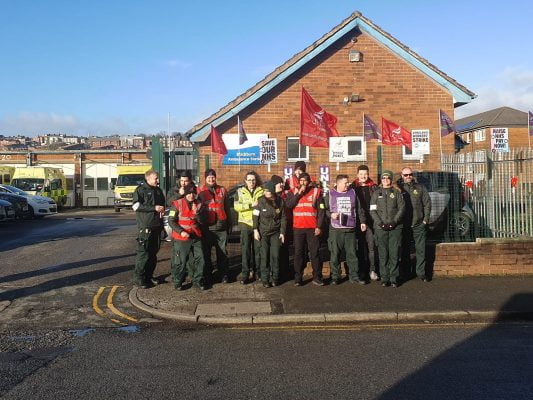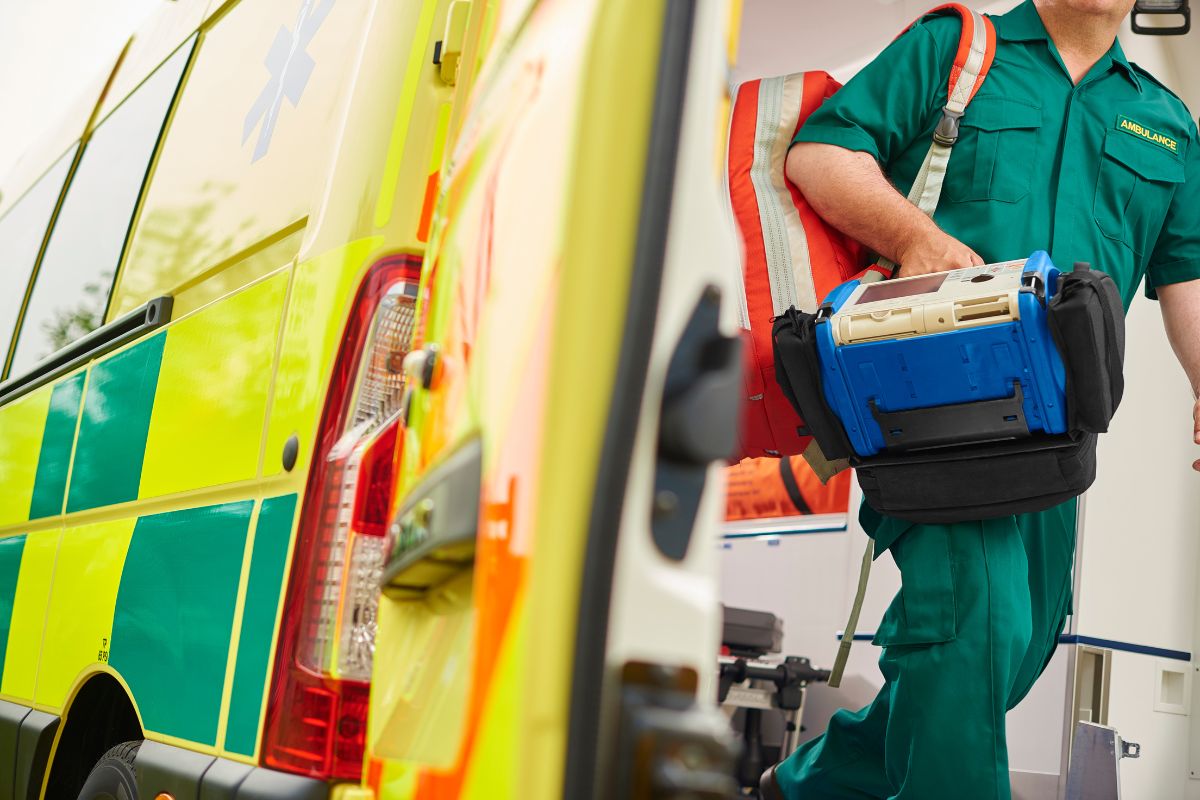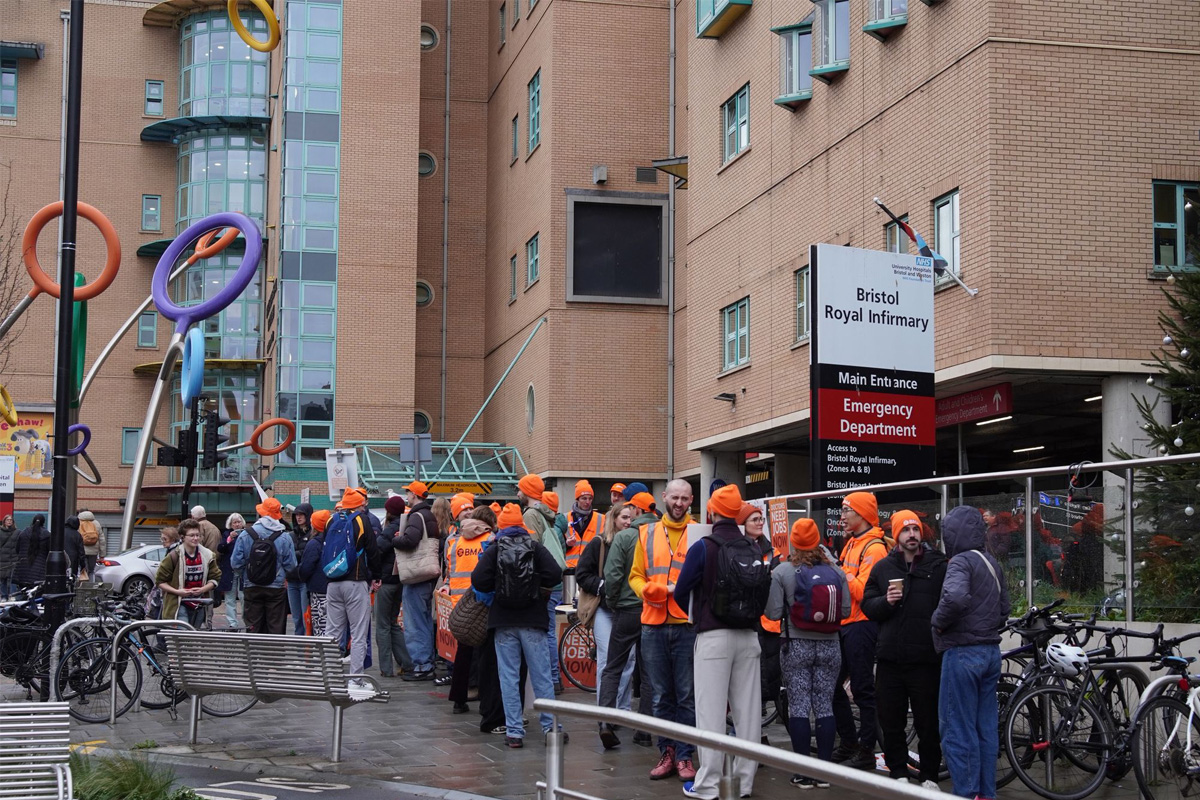Striking ambulance workers are taking a stand against attacks on their pay and conditions. We spoke to workers at the picket lines, who are ready to fight tooth and nail for victory and the future of the NHS.
On 21 December, in the cold and busy period leading up to Christmas, 1,600 Unite ambulance workers went out on strike.
Demanding an above-inflation pay rise, ambulance staff organised with Unite came out alongside colleagues in Unison and GMB and formed picket lines at ambulance service trusts across Britain.
Thought I pay a visit to the ambulance workers picket line in Blackpool tonight to deliver a message of solidarity from #TheCWU
What a cracking bunch – they even offered me pizza 🍕 😀 #NHSWorkersNeedAPayrise @NorthWestUNISON @gmbnwi @Unite_NorthWest pic.twitter.com/3Fq6iM9Vm1
— Carl Webb – #joinaunion (@NWCWU) December 21, 2022
With 92% of Unite’s ambulance workers voting for the strike, workers throughout the NHS are clearly taking a stand against the assault on pay and conditions by governments past and present.
NHS fightback

Pay is a key question when it comes to the future of the NHS. One Unite member in the West Midlands highlighted that part of the reason for the current NHS crisis is because pay is so low, meaning recruitment and retention is falling.
Unite general secretary Sharon Graham also correctly highlighted this, commenting on Prime Minister Rishi Sunak’s New Year’s speech that: “He knows that the suppression of pay has led to the unsafe and unsustainable staffing levels at the heart of the NHS crisis.”
Indeed, the situation is so dire that in some ambulance stations they have resorted to opening food banks for the staff.
Elsewhere, Graham described these strikes as “the fight of our lives for the very NHS itself”, as workers attempt to defend the future of the health service from the Tory government. Workers on the picket line clearly understand what is at stake.
One ambulance worker that Socialist Appeal activists spoke to at a picket line in East Lancashire, an ex-policeman, told us that he never thought he would be on strike. Now, however, he said he would “fight tooth and nail” for its victory. This militant sentiment was shared by all those on the picket.
Strike-busting
Before taking action, the unions carefully considered how their members would handle essential emergency cases during this strike. Nevertheless, the right-wing press have whipped up a ferocious campaign of fear-mongering against the strike.
The decision taken by workers was to still respond to emergencies deemed life-threatening. Nevertheless, the Tory government has stepped in and deployed 600 members of the armed forces to break the strike.
This strike busting has backfired, however, since the roped-in soldiers are completely unfamiliar with the nature of this work. One striker explained how they were severely limited by their lack of experience – as was found when one soldier drove their ambulance down a narrow road, crashing into the side of a wall!
Unite the struggles

With all three unions coming out together, this recent action was a fantastic initial step. Unite is also planning to extend the strike ballot to its members in the wider NHS, hoping to bring even more workers out in the coming year. Already, further dates have been announced for 23 January, with workers in the Welsh Ambulance Service also going out earlier on 19 January.
But with no indication that the government is willing to budge on questions of pay or staffing, the workers we spoke to have argued that the next stage requires continued coordination nationally, involving all unions and further escalation.
And as this struggle deepens, it will necessitate cross-union organisation at a rank-and-file level, with joint strike committees being established in every NHS workplace.
With nurses in the RCN set to come out again in January, and junior doctors in the BMA also balloting, workers at every level and in every part of the health service are gearing up for battle.
This extends to the wider public sector also, with teachers balloting and civil servants already taking action.
Unite, along with its sister unions, should therefore be preparing to organise a public-sector-wide strike, in order to topple the Tory government hellbent on destroying services.
Alongside united, militant action must be the demand for fully-funded, nationalised public services, run by workers, as part of a socialist programme to transform society.






